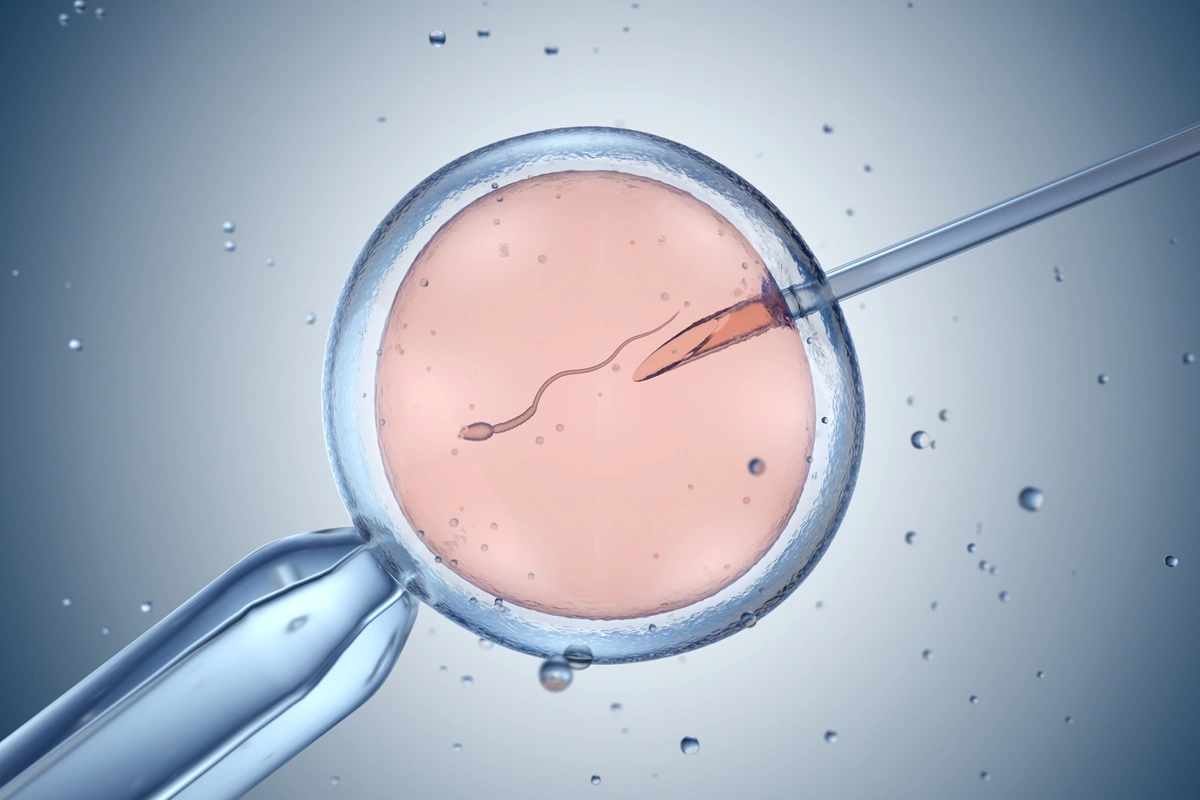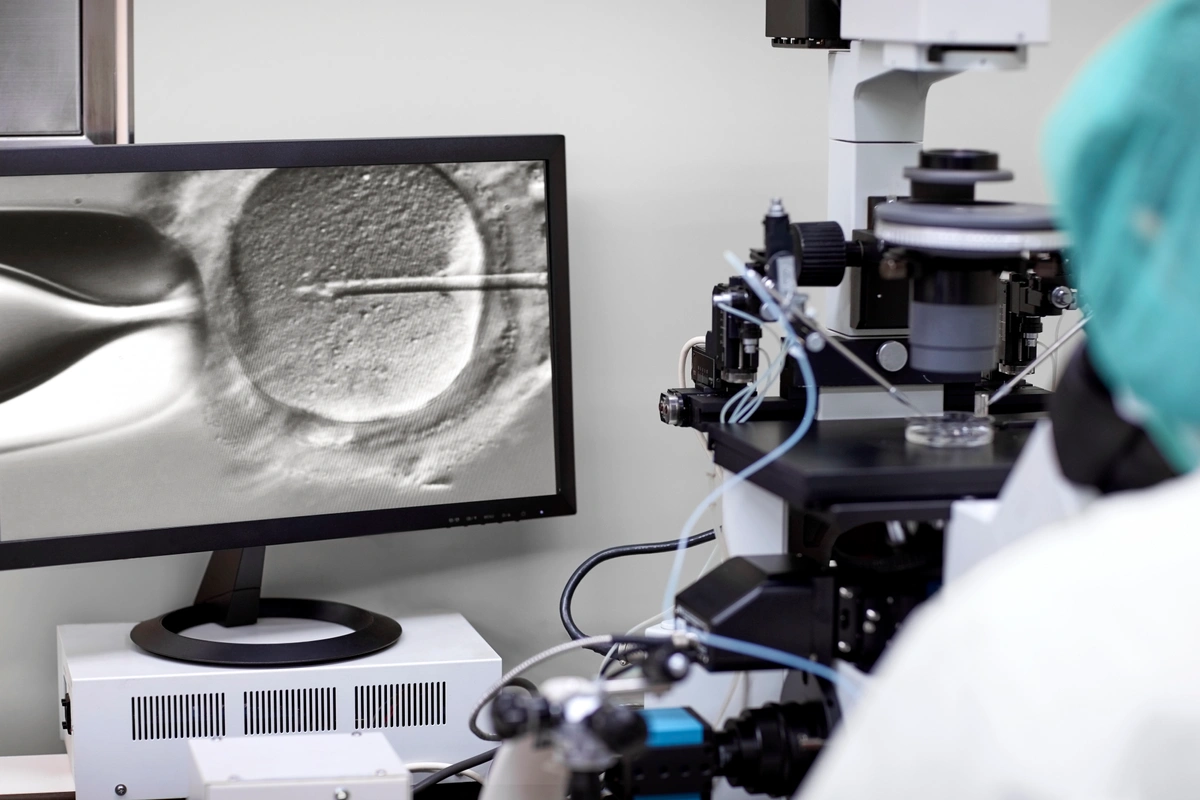
What Is ICSI? An Essential Guide to Intracytoplasmic Sperm Injection
If you’re undergoing in vitro fertilization (IVF) or considering it, you may have heard the term ICSI. It stands for Intracytoplasmic Sperm Injection, and it’s one of the most common techniques used to help fertilize eggs in the lab.
At Advanced Fertility Center of Chicago (AFCC), we use ICSI in many IVF cycles, especially when there's a concern about how well the sperm may be able to fertilize the egg on its own. Here’s what you need to know.
What Is ICSI?
ICSI is a specialized lab technique used during IVF to help achieve fertilization. Instead of allowing sperm and egg to meet in a dish and fertilize “naturally” (as in conventional IVF), a single sperm is injected directly into the egg using a microscopic needle.
This process gives the sperm a direct path to the egg, bypassing many of the natural barriers that might otherwise prevent fertilization.
Image of ICSI process, as seen by an embryologist
When Is ICSI Recommended?
ICSI is commonly used in cases of:
-
Male factor infertility, including low sperm count, poor motility, or abnormal morphology
-
Previous IVF cycles with low or no fertilization
-
Use of frozen sperm or eggs
-
Use of surgically retrieved sperm (e.g., from testicular biopsy)
-
Fertilization as part of preimplantation genetic testing (PGT)
Your physician will review your history and determine whether ICSI is recommended in your case.
How Does the ICSI Process Work?
The ICSI procedure is performed by an embryologist under a microscope in the lab. Here’s a simplified overview:
-
Eggs are retrieved during your IVF cycle.
-
A single healthy-looking sperm is selected.
-
That sperm is carefully injected into the center of the egg using a thin glass needle.
-
The fertilized egg (now called a zygote) is monitored in the lab for development.
-
Embryos are transferred or frozen depending on your treatment plan.
Does ICSI Improve IVF Success Rates?
ICSI can significantly improve fertilization rates in the right situations—particularly for patients with sperm-related issues. However, it doesn’t guarantee fertilization or pregnancy.
At AFCC, we evaluate each case individually to determine whether ICSI is appropriate, and we only recommend it when we believe it will give you the best chance of success.
Are There Any Risks?
ICSI is considered a safe and routine part of IVF. Like any medical procedure, it comes with some risks—though they are low. These may include:
-
A slightly increased risk of certain rare genetic or developmental concerns (mostly related to underlying sperm quality, not to ICSI itself)
-
A small chance the egg could be damaged during injection
Your physician and embryology team will walk you through all potential risks and answer any questions.
Have Questions About ICSI?
We’re here to help. If you have questions about whether ICSI might be right for you, or if you're starting IVF treatment and want to better understand your options, our team at AFCC is happy to talk you through every step of the process.
Schedule a consultation today to learn more about your personalized fertility treatment plan.
Categories
About the AFCC Blog
Welcome to the Advanced Fertility Center of Chicago’s blog! Here, you will find information on the latest advancements in fertility care and treatments, including IVF, IUI, third-party reproduction, LGBTQ+ family building, preimplantation genetic testing, and more. Since 1997, we’ve used our experience and continuous investment in the latest fertility technology to help thousands of patients grow their families. Contact us today for more information or to schedule a new patient appointment.


